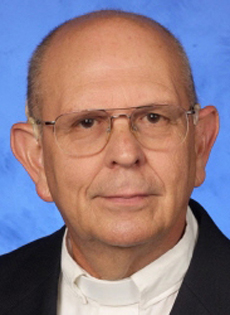
Ignatian Year 4: Jesuits and the vow of poverty
Monday, March 14, 2022
*Fr. Eduardo Barrios, SJ
This is the last of a four-part series on the Ignatian Year, which began May 20, 2021 and will conclude in July 2022.
The Ignatian Year invites Jesuits to examine the practice of evangelical poverty, taken as the first vow by all religious.
The founder of the Society of Jesus did not want to give too detailed norms on many practical elements of life in common, aware of the changing "circumstances of persons, places and times."
As an example, at the beginning of the 20th century, Jesuits were not allowed to own a personal typewriter, as it was considered a luxury. Over time, this writing instrument became cheaper and was no longer luxurious. Today most Jesuits write with the replacement of those machines, i.e., computers and cell phones. Something similar can be said of the socioeconomic environment. What is considered ostentatious in an underdeveloped country is not regarded as such in first world countries.
One question demands an answer. "What motivates so many men and women to consecrate themselves to God with vows of poverty, chastity and obedience?"
Since we are dealing here only with poverty, an ecological answer comes to mind. Austerity could be practiced as a means of conserving the planet's resources. While that motivation sounds laudable, anyone can advocate for rivers, seas, forests and wildlife without taking a vow of poverty.
Another possible answer could be inspired by the experiences of certain philosophers of Greco-Roman antiquity. It is known that there were great thinkers who lived a very austere asceticism. History mentions, for example, the Greeks Heraclitus, Diogenes and Socrates. Among the Romans, Seneca stood out. But religious poverty is not inspired by Stoic ideologies that could lead to the narcissistic satisfaction of having full control over bodily desires.
The vow of evangelical poverty is solidly based only on the love for Jesus Christ, poor and humble, who invites us to imitate him. Every renewal and radicalization of the vow passes through the prayerful contemplation of the life of Jesus Christ. Without this fundamental experience, all the restrictive norms regarding poverty will remain inoperative.
During the Ignatian year, the Jesuits will take part in several one-day spiritual retreats centered on identification with the Jesus of the Gospels. They will contemplate the Messiah King who did not want to be born in a royal palace, but in a stable where his cradle was a rustic manger (cf. Lk 2:7). Jesus grew up as a member of a poor family in an insignificant village from which it was doubted that anything good could come (cf. Jn. 1:46). He was believed to be "the carpenter's son" (Mt 13:55).
At the beginning of his public life, Jesus surrounded himself with disciples chosen mostly among poor fishermen. He presented himself so free of property that he could say that he had "nowhere to rest his head" (Mt 8:20). Jesus and his apostles had only voluntary help to cover their basic needs. In this regard, we learn of disciples such as Mary Magdalene, Joanna the wife of Cusa, Susanna "and many others who provided for them out of their resources" (Lk 8:3). Finally, Jesus ended his earthly pilgrimage stripped even of his garments, fulfilling the prophecy: "They divided my garments among them, and for my vesture they cast lots" (Jn 19:24).
It should not be forgotten either that in the context of poverty it is essential to rub shoulders with the poor. It is not a matter of working for the poor from a distance, but also with them.
From a renewed identification with Christ the poor and with the poor, Jesuits will be able to develop more detailed guidelines on how to live poverty here and now. By early 2023, the Society of Jesus is expected to have a new version of the Statutes on Poverty as well as a new Instruction on the Administration of Goods.
This blog was originally published as a column in the January 2022 edition of La Voz Católica.


Comments from readers